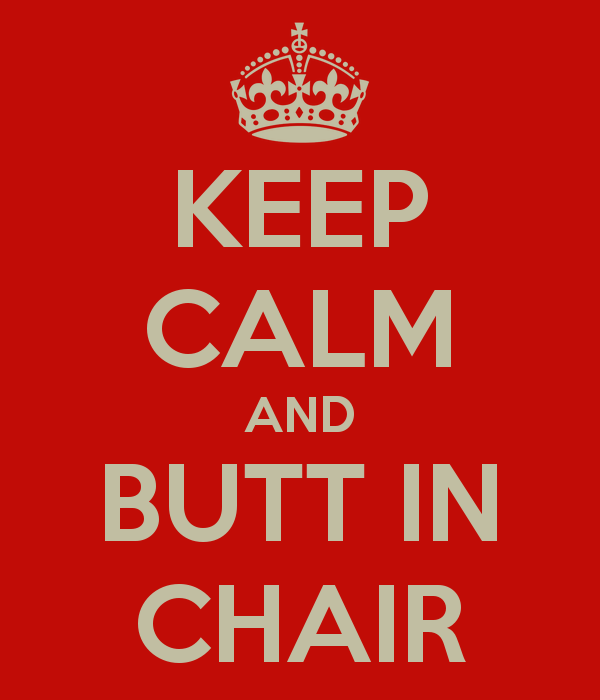
Writers Must Write
Deanna
- 0
- 197
If you want to be a writer then you must write. If you want to be a better writer then you must write. If you want to be a more successful writer then you must write. That is the one simple incontrovertible truth of writing. Writers must write. Writing is a habit that must be cultivated and that habit can only be developed by writing. The one dictate I give my students is to write. Just open up your mind and your heart and put words on paper. As activist writer Mary Heaton Vorse O’Brien said: The art of writing is the art of applying the seat of the pants to the seat of the chair.
Creating the daily habit of writing will do wonders for your creativity and your productivity – especially if you do not try too hard to focus the direction of your writing at first. Just let the pen scratch across the paper or your fingers fly on the keyboard. I like to start my day off write with a pen and journal. Many days this is simply a way to unburden my heart and vent my emotions, but sometimes I am surprised by the words and ideas that take shape on my page. Those wonderful serendipitous mornings are pure magic, but rarely are those morning writing jags a waste as they help clear my mind and develop my writing muscles. Athletes and musicians condition and train their bodies through repetition – specifically by developing muscle memory for specific motor tasks. Writers need to condition and train their brains in a similar fashion by writing. Not all of this writing will be good or useful, but developing the habit of writing will be very good and very useful.
Even after you have warmed up your writing muscles it is easy for your brain and your fingers to freeze up when you settle down to your intended writing task. I offer my students three pieces of advice to work through brain freeze. These methods work equally well for creative, scholarly, or professional writing projects. First, borrow the wonderful Peter Elbow exercise, found in Writing Without Teachers and other writings, and freewrite for 10-20 minutes. That is essentially what I do when I start my day off write. I simply let the words flow out onto the paper and turn off my inner editor and critic. Just write without stopping and without thinking. Do not look back. Do not worry about spelling, grammar, punctuation, or any other forms of correctness. If you cannot remember a word or a detail then just write whatever comes to mind and move on.
In her wonderful book about writing and life, Bird By Bird, Anne Lamott offers a more focused piece of advice to move your writing forward. She keeps a one-inch picture frame on her writing desk to remind herself that she does not need to write an entire book in one sitting. She only needs to write the one tiny glimpse of the story or event that can be seen through that one-inch picture frame. She shares two anecdotes to illustrate this idea. First a quote by E.L. Doctorow who said: “writing a novel is like driving a car at night. You can only see as far as your headlights, but you can make the whole trip that way.” Then she offers a story about her brother who felt overwhelmed by writing a report about birds and her father offered the advice to “just take it bird by bird.” All of my novels were written while I was married and held down a full time job as a reporter. There were no days that I could spend writing and polishing. My books were written in tiny corners of time that I managed to squirrel away or carve out of my busy life. I was able to make the most of that time because I had developed my writing muscles and because I focused on one scene, one description, one event at a time.
I am not certain about the origin of my third piece of advice, but in a nutshell it is a brain dump. The idea is simple. It is a more focused form of freewrite, because again you are not worried about correctness and simply focus on writing down everything you know about the topic or idea you intend to write about. Do not stop to look things up or find the answers to questions. Just note your questions or add parenthetical notes that you think you already have a source for that information. The idea is simply to let the ideas and information flow in a jumble onto the page. I have found over and over again that the brain dump is an useful way to let my subconscious do the heavy lifting while I go about my day. When I next sit down to write at worst I have a starting point to build off what I wrote the day before and at best my brain has been working over the material to give me fresh ideas to write about.
The beauty of daily writing is developing your writing muscle memory. The genius of using these writing strategies to kick off your writing session is that you can quickly kick-start a project. Even if little or nothing of what you have written using these exercises makes its way into the final project, you have a starting point. The blank page will no longer mock you into paralysis, because you have words and ideas and questions to build upon. Do you believe in the daily writing habit? Do you think muscle memory is an important tool for writers? What are your tricks for tackling brain freeze?


